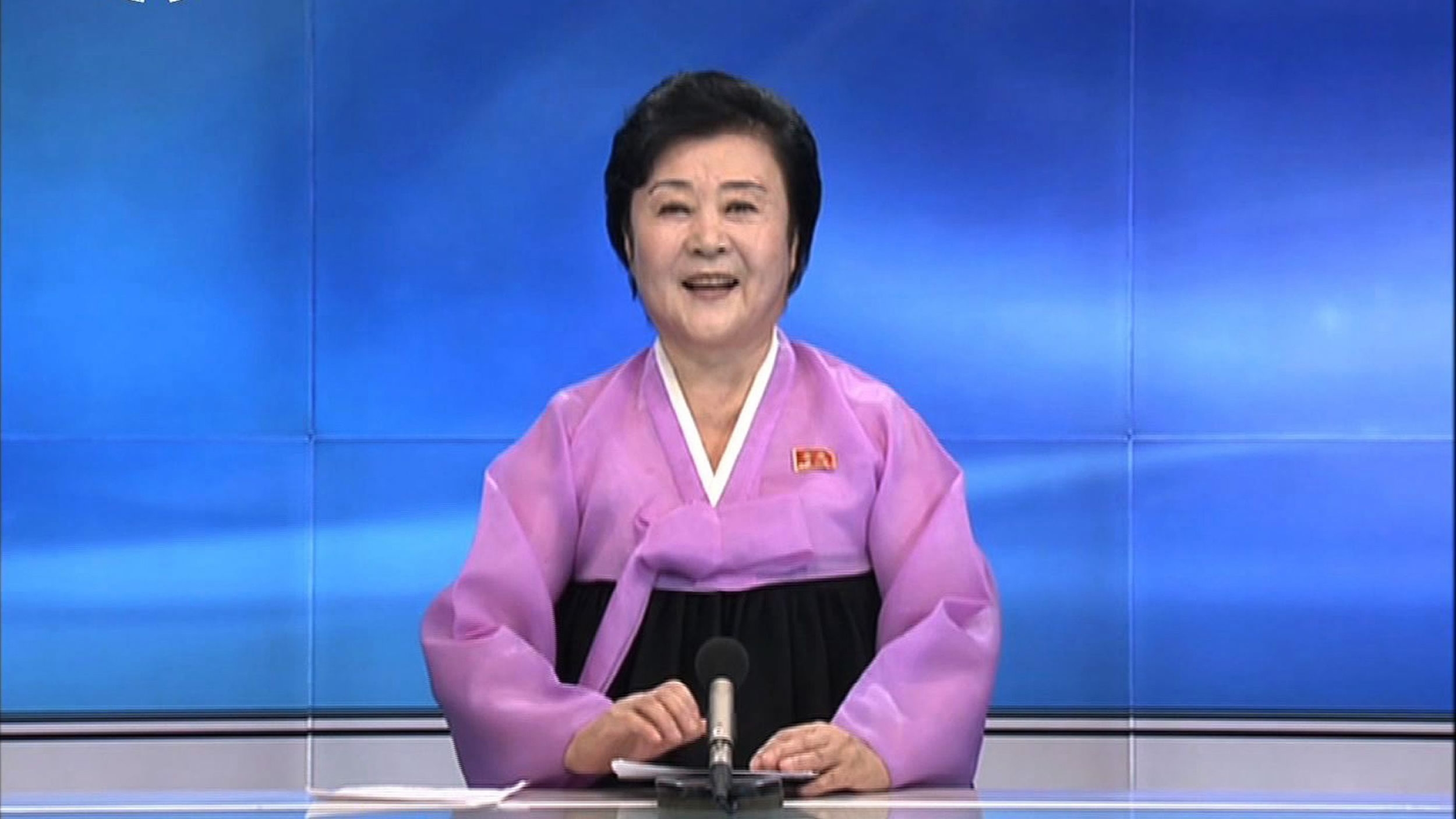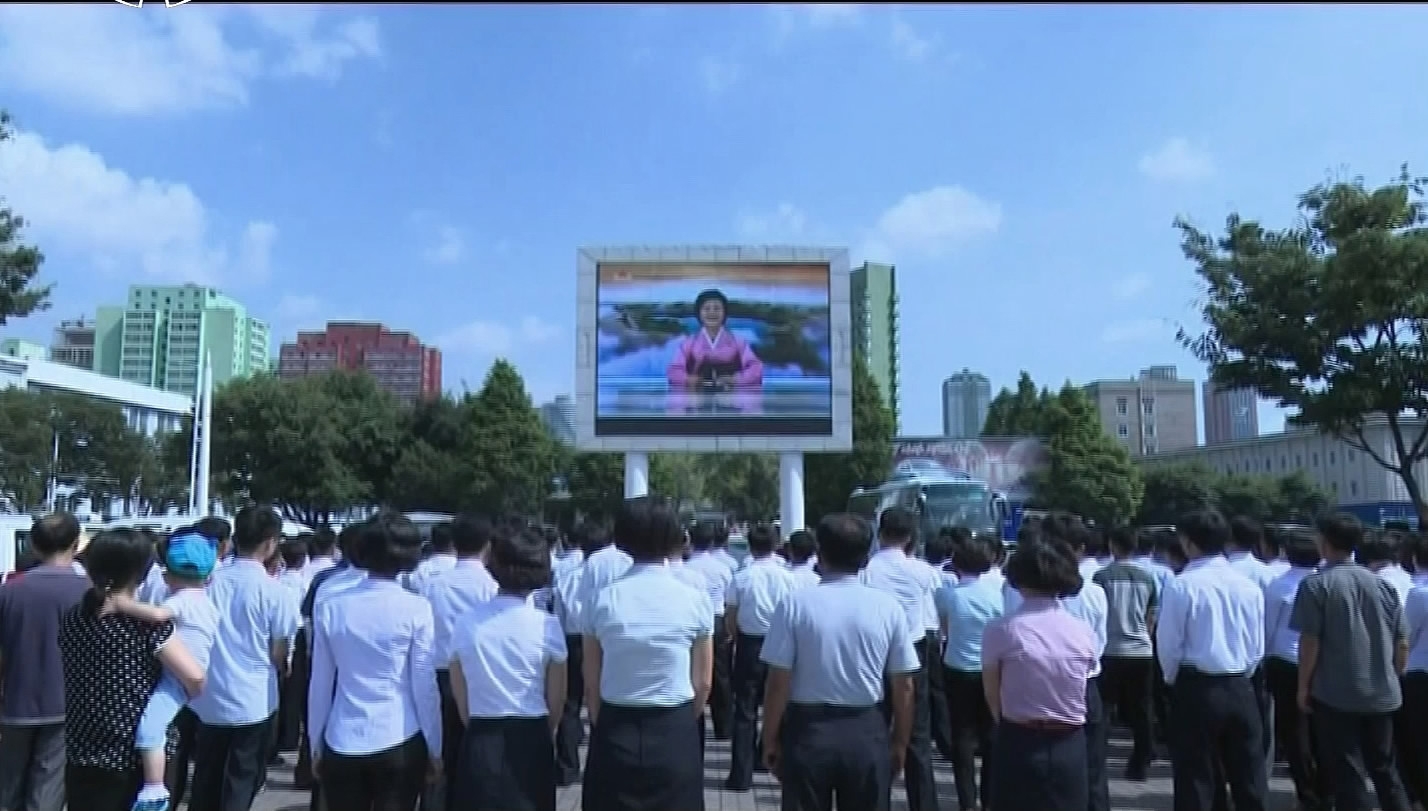
China
12:13, 05-Jul-2017
Ri Chun Hui: The resounding voice of DPRK’s government

When the government of the Democratic People’s Republic of Korea (DPRK) decides to address its people and the world, only one woman can be trusted to deliver the message.
In 1994, she sobbed when announcing the death of the country’s founding father Kim Il Sung. Seventeen years later, she choked up and her voice broke as she disclosed that Kim Jong Il, the father of current leader Kim Jong Un, passed away. Last year, she dropped a bomb – with a grin and a lit face – when she made public the success testing of the country’s first hydrogen bomb. And on Tuesday, when Pyongyang wanted to make known it successfully test-fired its first intercontinental ballistic missile – a major step in developing a long-range missile fitted with a nuclear warhead – the decision naturally fell on Ri Chun Hui (or Lee Chun Hee in Chinese).
From gentle to grandiose, soft to full-throated, and mild to menacing, Ri’s dramatic voice is a weapon in its own right, which Pyongyang deploys at every major occasion. She previously mourned leaders’ deaths, was at the forefront of reporting about the celebrations marking the anniversaries of the foundation of the Workers' Party of Korea, and chronicled the development of the DPRK’s nuclear and missile program and satellite launches.

Ri Chun Hui announces the successful launch of Pyongyang's first intercontinental ballistic missile on July 4, 2017. /VCG Photo
Ri Chun Hui announces the successful launch of Pyongyang's first intercontinental ballistic missile on July 4, 2017. /VCG Photo
"The Democratic People's Republic of Korea will terminate the US threat of war and blackmail in order to protect the peace and stability of the Korean Peninsula and the region," Ri boasted on Tuesday while announcing the success launch of an intercontinental ballistic missile (ICBM).
The long-range missile, which blasted off from the country’s northwestern part, hit the open sea in the Sea of Japan after a 39-minute flight, during which it traveled 933 kilometers and reached a maximum altitude of 2,802 km.
The launch of the projectile raised furious eyebrows worldwide, with China blasting it for violating UN Security Council resolutions and Japan calling it “absolutely unacceptable.” US President Donald Trump vented out his vexation on Twitter, branding the military move as “nonsense”.
But the international backlash had no echo in the DPRK, and the outrage seemed in stark contrast to the passion and exuberance Ri exhibited while on camera – exactly the reasons why after over a 40-year-long career as a newscaster and despite retirement, she is still brought back to the studio to deliver big news.
The 74-year-old anchor – one of the few famous DRPK faces and arguably the single-most known female name to have emerged from the solitary state – has repeatedly stirred up passions, at home and abroad, thanks to her sonorous broadcasts, high-energy performance and dynamic delivery of news.
Known as the “People’s broadcaster,” Ri’s journalism path started after her acting studies took a sharp turn. Drama evidently served her well when high emotions were required live on air.

Kim Jong Un, the DPRK leader, personally oversaw the test-fire of the country's first intercontinental ballistic missile on July 4, 2017. /VCG Photo
Kim Jong Un, the DPRK leader, personally oversaw the test-fire of the country's first intercontinental ballistic missile on July 4, 2017. /VCG Photo
Ri studied performing arts at the Pyongyang University of Theater and Film, training as an actress before taking center stage in the news studio of the state television Korean Central Television in 1971.
The Chosun, a monthly magazine published in the DPRK, said Ri was coached by late leader Kim Il Sung who cared for her "with warm love and faith," according to Reuters – which could explain why Ri wept in apparent pain when announcing his death in 1994.
Whenever Ri took to the air “viewers were touched… and enemies would tremble in fear," Reuters said citing a report by the DPRK publication.
In 2012, she reportedly called quits, taking up a new position behind the scenes as a trainer for a younger generation of news anchors.
Newsreaders should manage different announcing styles based on the news content they are dealing with, Ri told CCTV in a 2012 interview – one of the rarest times she spoke to international media.
“When you are reading (news) about the Democratic People’s Republic of Korea, you should not sound as if you are shouting, but speak gently to viewers,” she said.
But despite being out of the limelight since her semi-retirement, the veteran anchor has repeatedly returned to the screen to steal the show as she celebrated the country’s military feats with a blasting voice, and relayed angry threats to Pyongyang’s regional and international archrivals.
Her fiery voice, over-the-top exuberance and signature short black perm and traditional Joseon-ot dress have made her the face and voice of the DPRK’s state media and turned her from a news anchor to news headlines.
Her delivery technique has been the subject of intense discussion for its unconventional quality which diverges from the conversational voice considered as the norm elsewhere.

Ri Chun Hui knows how to draw a crowd with her dynamic delivery and resonant voice. /VCG Photo
Ri Chun Hui knows how to draw a crowd with her dynamic delivery and resonant voice. /VCG Photo
She puts the “bomb in bombastic,” said Charlie D’agata, CBS News foreign correspondent, when describing her announcement of the “H-bomb” test in January last year.
“There's a lot of showmanship that goes into 'North Korean' broadcasting,” Brian Myers, a professor of international studies at South Korea’s Dongseo University, told Minneapolis-based Public Radio International in 2009.
“For instance, there's the lofty, wavering voice, used when praising the nation's leadership. That's Ri Chun Hee's forte.”
Meanwhile on China’s blogosphere, Ri’s impassioned performance on Tuesday caused a ruckus among netizens, who seemed amused by the anchorwoman’s unbridled verve.
"Lee Chun Hee will become the shared memory for people of this generation in the DPRK," said a user who goes by the name @erlang__ on China’s Twitter-like Weibo.
"Lee Chun Hee should retire because of high blood pressure while shouting in the program," noted another user, @touchthesky8.
(Additional reporting by Cai Mengxiao)

SITEMAP
Copyright © 2018 CGTN. Beijing ICP prepared NO.16065310-3
Copyright © 2018 CGTN. Beijing ICP prepared NO.16065310-3